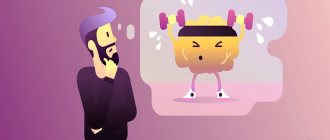Human resources are his potential, strength. In psychology, this includes abilities, knowledge, abilities, skills, beliefs, values, states, intelligence, positive thinking, high self-esteem, mental and physical health, and much more. In general, everything that supports a person inside and out helps him live productively and effectively. The more of these elements a person has, the more effective his relationships with the world and with himself are. Let us examine in more detail what human resources are and what they are.
Characteristics of human resources
What resources does a person have? Human life resources are internal (personal) and external. Sometimes in psychology they are called abilities (internal resources) and capabilities (external resources). Both of them help a person to carry out some type of activity: study, work, communication, etc.
Both types are closely related. External resources support internal ones. But at the same time, the more developed the latter, the higher a person’s ability to restore the former in case of their loss. However, if a person never finds a new external source of strength, then the internal reserves will exhaust themselves. You can be strong autonomously only for a limited period of time.
Let's look at both types in more detail.
Internal human resources
This is all that is inherent in a person by nature and has accumulated over the years of life. We can say that this is the inner world of a person.
Here's what applies to internal resources:
- knowledge;
- skills;
- skills;
- experience;
- interests;
- abilities (inclinations);
- character;
- temperament;
- emotional and mental states;
- worldview;
- beliefs;
- values;
- health;
- will;
- mood;
- intelligence;
- positive thinking;
- self-esteem;
- self-control;
- much more.
A person’s internal resources are the potential of the individual and all its characteristics. This is what helps a person develop, overcome difficulties, establish relationships with others, and move towards success and a happy life. If there are many elements and they are highly developed, then a person moves through life quickly and easily. He is distinguished by perseverance, self-control and resistance to stress. They say about such people that they have an inner core. If the basics are few, then a person gives in to difficulties, quickly gets tired, gives up, gives up his goals and desires, and is content with little.
Note! If a person does not have some resource, then you should not expect appropriate behavior from him. For example, if a person does not know how to love (himself, others - it doesn’t matter), then you do not need to expect hugs, kisses, or compliments from him. He was not taught this, such a resource was not invested in him.
External human resources
This is all that supports us from the outside world. Each person has his own set of sources of strength. Typically these include the following elements:
- Friends;
- relatives;
- Colleagues;
- hobby;
- favorite work;
- books;
- material goods and money;
- useful connections;
- the entire social circle;
- social statuses and roles;
- interlocutors on forums;
- neighbours;
- acquaintances from a hobby group;
- etc. and so on.
Every person has external resources, as well as internal ones. Although their presence and support are not always noticeable. It is important to focus on what is there and not on what is missing. For example, some people from poor families worry that there are no influential people or useful connections in their environment, but at the same time they do not notice that there is warmth and support from loved ones. They don’t notice that among their relatives there are those who believe in them, friendly and sympathetic people.
Important! With the help of internal and external resources, a person satisfies his needs for survival, safety, comfort, love, respect, recognition, self-realization, etc. – from lowest to highest according to A. Maslow’s pyramid.
Types of resource states
There are two main types of resource states, each of them is important in its own way and should not be considered separately from each other.
- Physical – vigor, physical activity, freshness. The person is completely rested and has an established sleep schedule. Some people just need a good night's sleep to achieve resources on a physical level. Lack of sleep is the scourge of our time. It’s impossible to do everything, don’t forget to monitor not only the quantity, but also the quality of your night’s sleep.
- Psychological – self-confidence, vitality and desire to reach the top in the profession, gain new knowledge and apply it in practice. The resource state in psychological terms is often compared to visiting a muse. You are inspired, full of strength and ready to create, no matter what.
The greatest effect is achieved only in a combination of these two factors. It is impossible to create and work uncontrollably when you are physically exhausted. On the other hand, rest, proper nutrition and daily routine are not a guarantee of productivity. After all, when you are depressed, anxious and do not believe in your own strength, you will not achieve the notorious resource.
Components of a person’s personal resources
In psychology there is no unified classification of sources of strength. Let us summarize these elements in the form of a table of internal and external human resources:
| Domestic | External |
| Time | Information |
| Health | Connections |
| Intelligence | Money |
| Emotions | Power |
Sometimes hidden psychological resources are also identified. These include energy, perception, awareness, intention.
Now let’s look at the most important personal (internal) resources of a person in more detail. Advancement up the career ladder, success in your personal life and in relationships with friends, the nature of your relationships with society, and life satisfaction depend on them.
Health and physical strength
Psychological comfort depends on physical comfort. It's hard to think about anything else if you're in pain or if your life is in danger. In addition, strong immunity, good health and a physically developed body help a person to be active and mobile.
For example, we all know how a common cold can unsettle you for weeks and disrupt all plans. Or this example of the importance of health. Drivers and others who sit a lot know how important it is to keep their back healthy. Otherwise, you may find yourself bedridden and unable to work.
In addition to physical health, psychological well-being is also important. Therefore, it is necessary to get enough sleep, eat right, avoid stress, and solve emerging psychological problems in a timely manner.
Important! Physical health, well-being and a strong body are the key to everything in our lives.
Intelligence
Intelligence is translated from Latin as “perception”, “understanding”, “understanding”, “concept”, “reason”. This is the ability to cognition, comprehension and problem solving. It is also the ability to organize activities in such a way that all the information contained in the brain will be used with maximum benefit and efficiency.
Intelligence is a more complex structure than people usually imagine. It is associated with such cognitive abilities as:
- attention;
- imagination;
- thinking;
- performance;
- perception;
- sensation;
- memory.
In addition, it is important to know that there are 9 types of intelligence:
- natural (naturalistic);
- musical;
- logical-mathematical;
- existential (philosophical);
- kinesthetic (bodily);
- interpersonal (social);
- spatial (figurative);
- linguistic (verbal);
- personal (internal).
The problem is that many people focus on only one resource - logical-mathematical intelligence (IQ). And because of this, they do not notice their true potential, do not use and ignore their inner strengths.
Positive thinking
It is important not to confuse this with blind optimism. With positive thinking, a person does not convince himself that everything is fine and does not ignore difficulties. He sees them and acknowledges them, but at the same time he is confident that he can cope with any setbacks. He is confident in himself, knows his strengths and weaknesses, and knows how to use them wisely. Such a person perceives difficulties as opportunities. Positive thinking encourages a person to pay attention to personal resources, use them, replenish and replenish them.
Self-esteem
Only with adequately high self-esteem can you achieve success in life. Low or high self-esteem leads to a person’s inadequate assessment of reality.
For example, with low self-esteem, he blames only himself for all failures and goes into self-flagellation. And with inflated self-esteem, he shifts responsibility to other people. In the first case, a person underestimates his abilities and gives in to difficulties, does not even try to express himself or try something. In the second case, a person overestimates his abilities and capabilities - because of this, he often ends up losing.
Note! With low self-esteem, a person criticizes himself as a person. With adequate self-esteem, a person criticizes his individual actions, thoughts, actions, but at the same time he maintains faith in himself and a sense of self-worth.
Skills
A skill is a skill that has been brought to automaticity. In psychology, it is customary to distinguish four types of skills: motor, mental, sensory and behavioral skills. It is worth mentioning separately about professional skills; they are based on the main four types. With the help of all these skills, a person becomes useful to society, enters it, establishes connections and takes his place in any system of relations, be it the work sphere or personal relationships.
Self-control
Self-control is the ability to remain calm and sober, to make informed decisions in difficult life situations. Without self-control, it is impossible to build harmonious relationships with others, build a career, learn something and move through life. Loss of self-control is fraught with conflicts and rash actions with disastrous consequences. A person with poor self-control can cause harm to himself and others.
What factors prevent you from achieving a resourceful state?
Sometimes we ourselves create obstacles to entering a resource, and not external circumstances. Here are some personality factors that need to be tamed.
- Limiting beliefs. We program ourselves for failure by assessing the environment and the chances of success in a negative way. The reason for this is children's complexes imposed by parents and peers. Self-doubt also develops in abusive relationships. Try to find and work out the cause of tightness and uncertainty on your own. If you can’t do this on your own, consult a psychologist.
- Perfectionism. Striving for the ideal causes dissatisfaction with yourself, and the fear of failure dominates you. Even when you decide to do something, you constantly improve the final product and are never satisfied. There is nothing to talk about any resource in such conditions. Learn to relax and allow yourself to make mistakes.








